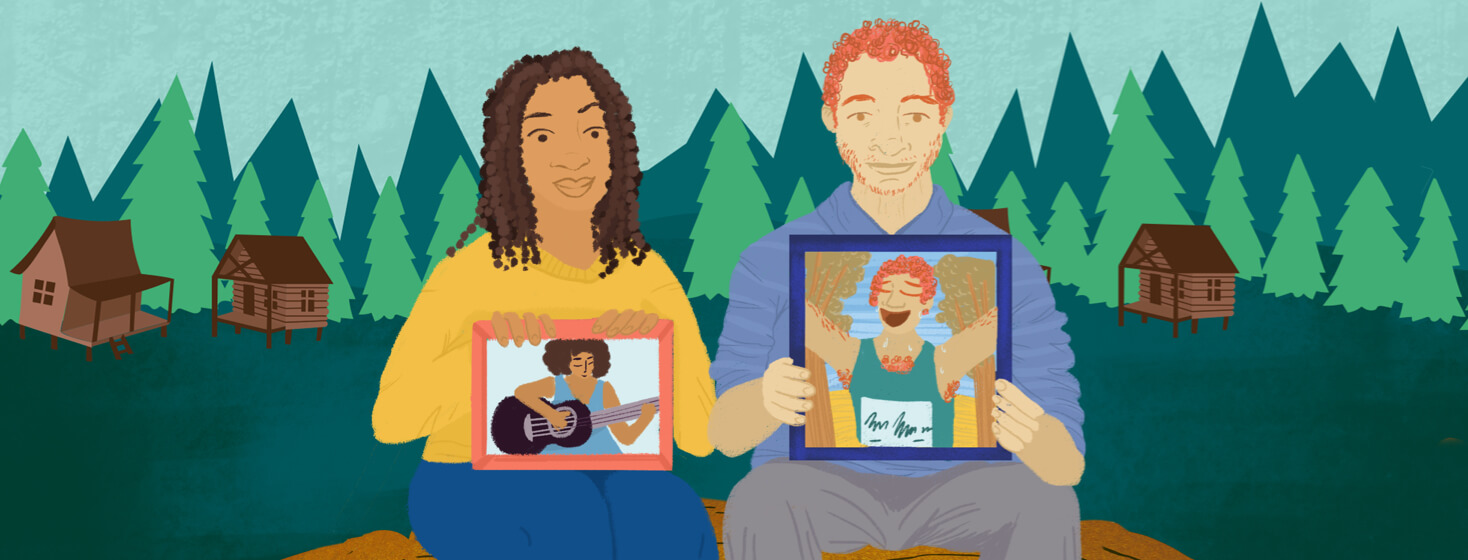I "Also" Have Epilepsy: On Seizures and Identity
We need to talk.
As someone who has never meditated longer than 18 minutes, and might as well have found this quote on a towel at Bed Bath & Beyond, it feels disingenuous to start this way. But the man has a point, so here it goes – a quote from The Buddha:
"What you think, you become. What you feel, you attract. What you imagine, you create."
"What's your name?"
A memory I will never forget: A boy, 12, looks at me. He’s terrified. I ask his name. He responds, "I have epilepsy." This was the first day of camp. For 7 years I worked at a camp for kids with epilepsy (Camp Coelho, run by Epilepsy Foundation Northern California). I told the boy," I know! Everyone here does, myself included! He stops me. "You don’t understand. I have epilepsy."
For this boy, at this moment, it was more important that he tell me his condition than to tell me his own name. For many, that is the experience of living with epilepsy. It becomes who we are.
I have told friends: I am not afraid of the seconds and minutes I am going to miss because I have a seizure. I am afraid of the years I have missed in between seizures. That, to me, is the weight of epilepsy. How does one plan for tomorrow when today is in question? A person who is going out on a limb to assume they’ll be well enough to see a friend later that same day will struggle to answer the question, "Where do you see yourself in 5 years?"
We are defined by our dreams and aspirations. Whether they’re grounded or lofty, envisioning a path to a goal is to express that life is worth living: that there is a reason to keep trying. Seizures disrupt plans at best, and at worst, they disrupt the path. This is especially a challenge for the newly diagnosed. People navigating a new or changing diagnosis are wondering if they’re hirable or if it’s reasonable to set their heart on any long-term goals.
But epilepsy is only part of our identity
Who are you? Are you someone who likes to garden? To cook? Maybe you enjoy playing music. A writer? A good listener? Where does epilepsy fall on the hierarchy of who you are? Is it the first thing? The second? The more time we spend thinking about who we are outside of epilepsy, as The Buddha points out, the more we become that thing.
The transition from being a "person who has epilepsy" to a person who "also" has epilepsy is a challenging one. It is also the most important. To live well with a disease requires first that we try our best to live outside of it. That means doing our best to identify with our gifts. We have to do our best to spend that precious time between seizures on things we like about ourselves. When we feel a sense of growth we feel like we are on track to being something else. There’s something in it for us to make a plan today even if we have to reschedule for tomorrow.
I’d like to introduce the boy from camp. He’s a sweet kid. He likes to sing. He loves Tom Petty but not half as much as he LOVES capture the flag. He’s got a thing for baseball, and can spend all day by the pool. By the way, he "also" has epilepsy.

Join the conversation